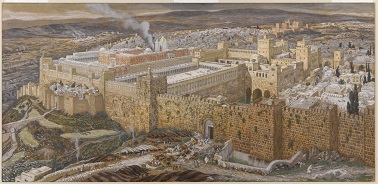What festivals took place in ancient Israel? How can we learn about these festivals, and did they develop over time?
Like all ancient peoples, the Israelites and Judaeans celebrated festivals, many of which are still celebrated today. These festivals are prescribed by the various legal texts found in the Hebrew Bible. Deut 16 describes three pilgrimage festivals: Pesach and the Feast of Unleavened Bread (Deut 16:1-8); Shavuot or the Feast of Weeks (Deut 16:9-12); and Sukkot or the Feast of Booths (Deut 16:13-17). These festivals are also described in other parts of the Hebrew Bible (Exod 12; Exod 13; Exod 23:14-19; Exod 34:18-26; Lev 23; Num 9:1-14; Num 28-29). However, the texts do not agree concerning how the festivals are to be celebrated. Many scholars believe that there are three distinct legal codes found in the Hebrew Bible, which stem from different periods in Israelite and Judaean history and therefore reflect different developments in the nature of the religion and its practices. In particular, the book of Deuteronomy seems to stem from a time when the nature of worship was undergoing a radical revision. According to the books of Kings and Chronicles, before King Josiah centralized worship in the Jerusalem temple in the seventh century BCE, there had been no united festival celebration since the time of Samuel (2Kgs 23:22; 2Chr 35:18). Instead, the various festivals were celebrated either in local sanctuaries or in the home. Exod 12:7, Exod 12:23, for example, prescribes daubing the blood of the Pesach sacrifice on to the doorposts of the “houses in which they eat it,” suggesting that this festival was celebrated at home. But a central part of King Josiah’s religious reform was to unite all worship and sacrifice in the Jerusalem temple, on the basis of the provisions of a “book of the law” that he had found (2Kgs 22:8). Scholars have long connected this “book of the law” with the book of Deuteronomy, since the centralization of worship in “the place where the Lord your God will choose” (i.e., Jerusalem) is one of the characteristic requirements of the book. Consequently, festivals which had originally been celebrated either in local sanctuaries or in households had to be reinterpreted as pilgrimage festivals. Deut 16 makes a number of interpretive decisions in order to reform the ways in which these festivals were celebrated.
It is likely that the three pilgrimage festivals of Deut 16 began as agricultural festivals connected with seasonal harvests. These originally pastoral harvest festivals are revised in Deut 16. To begin with, the prescriptions for the celebration of the festivals are much shorter, with a minimum of detail. Pesach and the Feast of Unleavened Bread, which seem to be separate festivals in Lev 23:5-6; Num 28:16-17, are combined in Deuteronomy. All of the festivals are pilgrimage festivals—three times a year, Israelites must travel to the Jerusalem temple in order to celebrate these feasts. Instead of relating the festivals to the harvest, the festivals are connected to the redemption of Israel from slavery. Pesach is related to the sacrifice made by the Israelites on the night before the exodus. The Feast of Unleavened Bread commemorates that the Israelites had to bake unleavened bread in their rush to leave Egypt. The memory of slavery is invoked to motivate the celebration of the Feast of Weeks (Deut 16:12). In this way, Deut 16 is able to reinterpret older traditions according to the new theological agenda of centralized worship in the Jerusalem temple.
This process of reinterpretation continued in biblical tradition and beyond. Unlike the other two festivals, Deut 16 does not tie the Feast of Booths to Israel’s redemption from slavery, although the later text of Lev 23:39-43 continues the process of reinterpretation by connecting the festival to the sojourn in the desert. In later Jewish tradition, the Feast of Weeks is connected to the giving of the Torah on Mount Sinai. In order to celebrate these festivals, the differences in the biblical descriptions of them must be harmonized, a process that began in the biblical period. In Exod 12:3-5, Exod 12:21, the Pesach sacrifice is lamb; whereas in Deut 16:2, it is both lamb and bovine. This is harmonized in the book of Chronicles, where bovines are sacrificed in a separate ceremony from the lamb sacrifice, as “sacred offerings” (2Chr 35:7-13). By looking at the reinterpretation of the biblical festivals across different texts in the Hebrew Bible, we can see how different religious practices were understood and transformed over time.





